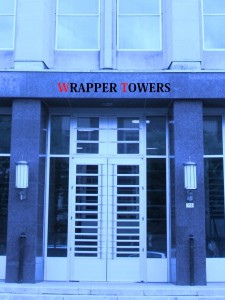MTN’s Mauritian Billions
A group of investigative journalists in Africa working with Finance Uncovered, a TJN supported project have discovered that Africa’s largest mobile phone network, MTN, has been moving billions of Rand in revenue to the island of Mauritius.
MTN is a giant in Africa. One in four mobile phones on the continent are on the MTN network, and the company earned $12.5bn in 2014. This makes it one of the largest businesses and largest tax payers in the countries where it operates.
However, Finance Uncovered journalists found MTN subsidiaries in Nigeria, Ghana, Cote d’Ivoire and Uganda making questionable payments that had the potential to reduce taxable profits in those countries.
For years, subsidiaries paid an annual charge for management and technical services to a shell company in Mauritius where MTN employs no staff.
MTN insisted that the Mauritian company was tax resident in South Africa, but the investigations team revealed a number of government agencies in countries outside of South Africa challenging these payments.
The story can be read in South Africa’s Mail and Guardian, the Ugandan Observer and Ghana Business Online.
The case raises an interesting issue about the nature of tax avoidance by multinationals. For years the public perception of tax avoidance has been all about the big bad multinational squirreling away their profits in a tax haven and screwing over the public.
However if what MTN say is true, and all the revenues moved to Mauritius are taxed in South Africa, then this is perhaps less a story about the taxes MTN pays, but rather a distributional issue between South Africa and other African countries.
MTN has a special relationship with the South African government. The current Vice President was the Chairman of MTN’s board for 10 years. Could this be a case of South Africa using its corporates to extract taxable profits from other countries?
OECD to the rescue?
Are all of these issues about multinationals and tax avoidance about to be consigned to the history books? Last week the OECD released its final recommendations on how governments should change the tax rules to combat profit shifting by multinationals. The proposals go by the ugly term BEPS, which stands for Base Erosion and Profit Shifting.
It is hard to understate just how important this agreement is. This is the first time in years that the world’s most powerful economies have made a concerted effort to come together and tackle tax avoidance. Already the G20 has signed up to the OECD recommendations and it is expected that most countries in the world will do also.
But important is not the same as effective. Unfortunately, the OECD continues to embrace the core mechanisms that are at the heart of the international tax avoidance problem, meaning that any action will likely only have a limited effect.
Most profit shifting happens when affiliates of multinational corporations trade with each other. These intra-company trades can be priced in a way to allow companies to move profits between high tax and low tax jurisdictions.
In theory tax authorities can disallow any trades that do not happen at an open market price and aren’t genuine. This is the ‘arms-length’ principle (the story from Swaziland below illustrates how some can claim the most absurd ‘arms-length’ transactions’.) However, in practice the multinationals’ accountants make sure that these trades are all but impossible to crack.
A powerful example is provided by Finance Uncovered’s MTN story. In 2011 the Ugandan Revenue Authority discovered MTN charging management fees to a post box in Mauritius. Four years later they are still battling with the company in the courts.
Sadly, the OECD continues to embrace the arms length principal. Its proposals essentially ask tax authorities to assume that multinationals companies are simply a series of independent companies, when clearly they are not. In other words, we continue to live in a fantasy world. A full briefing on the OECD’s proposals can be found at the BEPS monitoring group.
Plane corruption?
The dogged investigative combination of Susan Comrie (another Finance Uncovered veteran) and Dewald van Rensburg of City Press have resulted in a blistering investigation into the collapse of Swaziland’s first iron ore mining operation since 1977.
In 2011 a company called SG Iron was given a 7 year license to reprocess Iron Ore dumps that were left behind when Anglo American stopped mining in the country over three decades ago.
However, despite booming commodity prices at the time, the company never turned a profit and as a result paid no tax. Almost all of the revenues made by SG Iron were eaten up by “transport costs” paid to a company in the Seychelles owned by Shanmuga Rethenam, a Malaysian businessman and owner of SG Iron.
He told City Press that the 94-97% of revenues that the company, located in landlocked Swaziland, spent on buying transport from a company several thousand miles away in the Indian Ocean were a “total arms-length transaction”.
One Sawzi did see a healthy return, the King, who owned a 25% stake in SG Iron. He was given a loan of $10m which would be repaid through future dividends from SG Iron, dividends which of course would never be paid. Rethenam has also claimed that he was “forced” to pay $1.5m to a New York art dealer and $3.5m for luxury upgrades to the Sawzi King’s plane.
The full incredible story can be found here.
World Bank President says tax avoidance is a form of corruption
City Press’ Swazi investigation is exactly the kind of example that may interest World Bank President Jim Yong Kim. In a wide ranging speech earlier this month the President of the World Bank said:
“Some companies use elaborate strategies to not pay taxes in countries in which they work, a form of corruption that hurts the poor.”
Quite. More on the speech on the TJN website here.
The Netherlands, user or abuser?
The Netherlands has come in for a lot of criticism in recent years over the way in which multinational companies use the country to structure their tax avoidance schemes. Most recently an article from the Guardian exposed how AstraZeneca, a UK drugs company used a tax avoidance scheme routed though the Netherlands to avoid millions a year in taxation.
However, just as multinationals are keen to put their money through the Netherlands, Dutch people are just as keen to get their money out.
A former Dutch tax inspector has told a TV programme that the nation’s wealthy are stashing an estimated €129 billion in tax havens. Jan Van Koningsveld told the programme that although using shell companies in a tax haven is not in itself illegal, they were a common tool used by criminals.






Leave a Reply